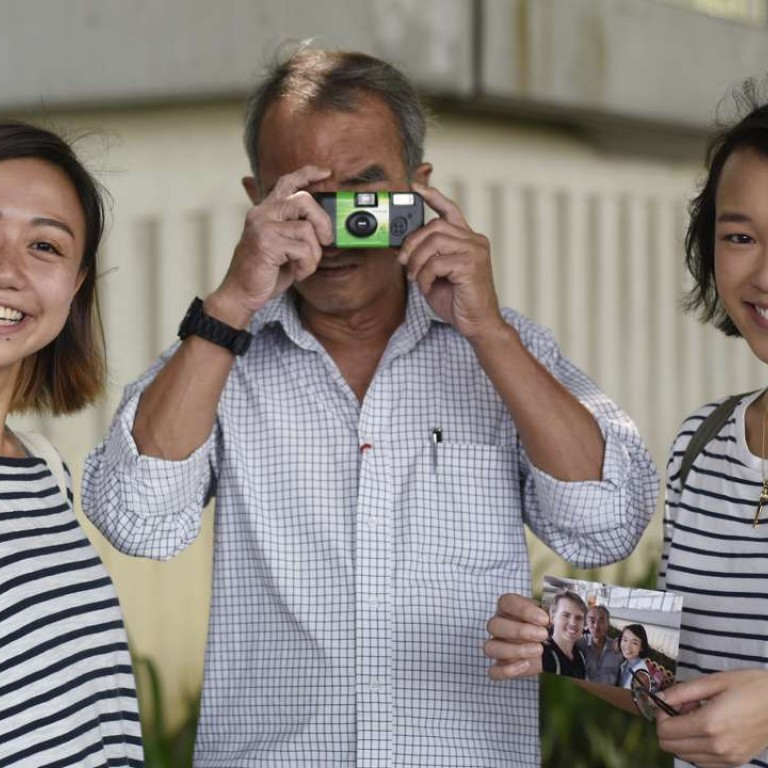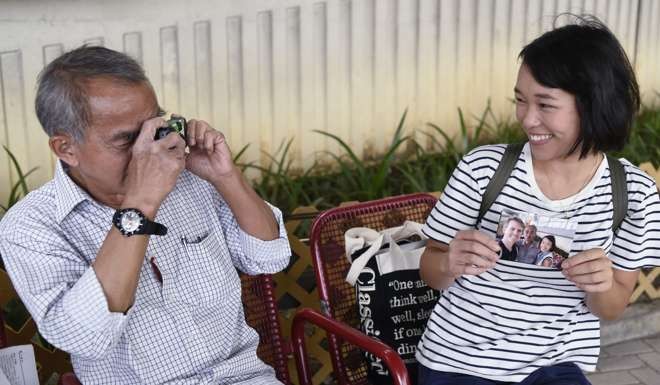
Hong Kong homeless raise awareness of their plight by snapping photos of daily life
Unique diary project hands cameras to street sleepers in face of rising numbers
On a bench underneath the footbridge opposite Hong Kong’s Legislative Council, you can usually find 68-year-old Peter Goh sitting quietly in a buttoned-down shirt, reading a newspaper.
Cheerful and polite, he’s well known by those who work nearby, with many stopping to chat with him during their commute. But when the day draws to an end and the streets slowly empty, Goh remains, hunkering down at a spot in Tamar Park where he spends his nights.

“I take the cleanest papers and spread them out on the ground at about 8pm,” he said. “Around 3am I’ll make my way to the [Khalsa Diwan] Sikh Temple where they serve free food, and then come back to the bench at 7am.”
Goh is one of eight homeless participants in a new photo diary project that aims to highlight homelessness in the city. Created by two Hongkongers and an expat, the “Our City, My Story” project involves giving disposable cameras to the homeless and encouraging them to take photos of their daily lives. The photos are shared on a website that launched last month ahead of World Homeless Day on Monday.
The operation was inspired by London-based social enterprise Cafe Art, according to project leader Stephanie Lau Chi-woon, 27, a Hong Kong-based marketing professional born in the city but raised in Australia.
“We want to give these individuals a chance to tell their side of the story. We want to humanise the homeless,” she said. “They all have different ways of handling where they’re currently at, and, more often than not, they often have very positive attitudes.”

Hong Kong street sleepers more than doubled from 229 in 2008 to 742 last year, according to a report this year by the Census and Statistics Department. As of last month, the number was 912.
Yet in January, a citywide survey by local universities and NGOs found there were 1,614 homeless people last October – almost triple that of 2004.
Ng Wai-tung, a community organiser at non-profit Society for Community Organisation, said the city’s homeless population was growing because the local housing crisis kept worsening without affordable options.
Ng said that although some homeless people have jobs and can afford low-income housing, many choose to live on the streets because of the harsh living conditions in such units and the city’s lack of rent control.

“If you move into a cubicle with no window, rent is from HK$1,800 to HK$22,00,” he said. “In the summer, without air conditioning you can’t sleep ... and insects bite your skin.”
SoCO has pushed for the government to create more medium-term housing options enabling people to stay for at least three years, yet the government lacks policies or a specific department dealing with the homeless, he said. In New York city, hostels allow people to stay seven years, but in Hong Kong they have to leave after only half a year, he added.

Since 2010, SoCO has seen the government conduct at least seven operations clearing out the homeless population in districts like Yau Tsim Mong.
“They just wait for the homeless to leave the area and then throw all their things away,” Ng said of the sweeps. “It’s ridiculous and unreasonable.”
They just wait for the homeless to leave the area and then throw all their things away
Homeless individuals also face challenges when it comes to employment. Ng said those who are unable to provide a phone number or home address often have trouble landing a job.
A Social Welfare Department spokeswoman said the government subsidises NGOs to provide street sleepers with services such as hostels, emergency shelter, employment guidance and personal care. She added the department has an emergency fund covering certain expenses like rental deposits and living costs for eligible users.
Having lived on the streets since 2009, Goh has had trouble finding work the last three years after losing his job at 7 Eleven. Despite the challenges, he maintains a positive attitude and is grateful for his friends and the kindness of strangers.
“I think this project is a good thing,” he said. “Very few people in Hong Kong are aware of [our situation]”.

